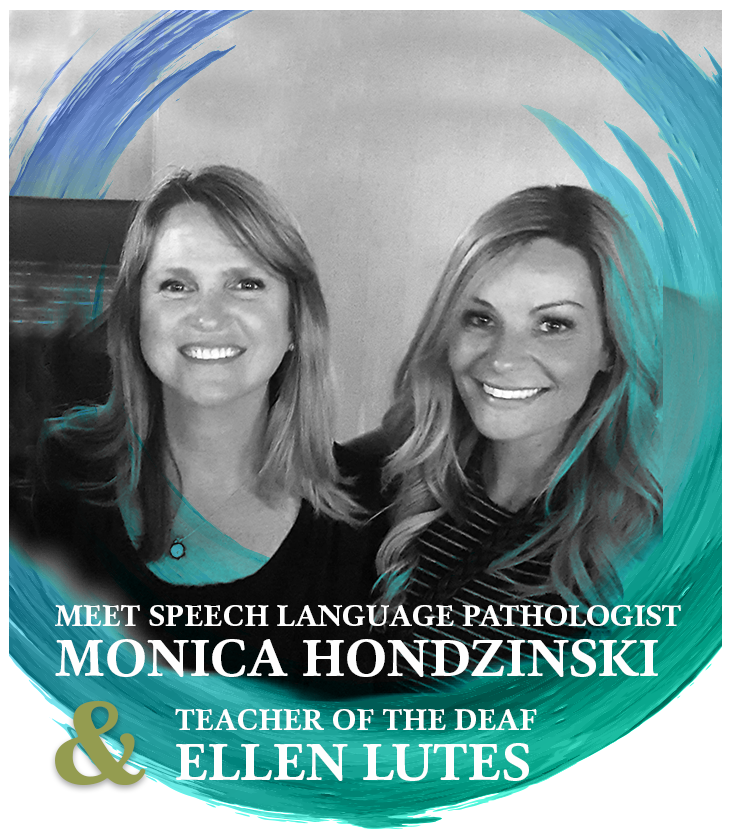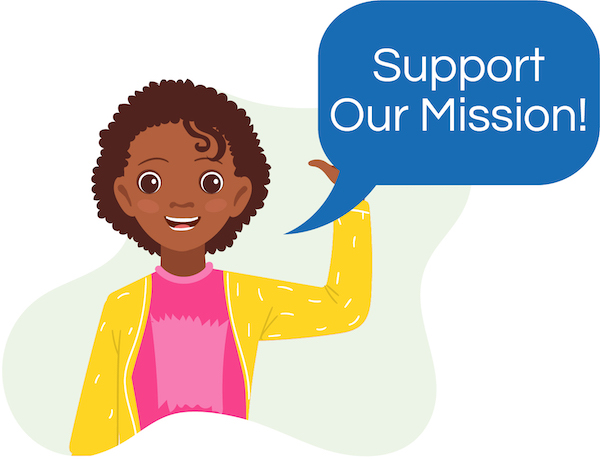Since BHSC is full of wonderful staff that are making differences in the lives of those we see every day, we thought it would be fun if you got to know us better! Let’s learn about Monica and Ellen with their Fast Four about working at BHSC in the Oral Deaf Education Program and how they have adapted to virtual learning and tele-therapy during the COVID-19 Epidemic.
Monica Hondzinski has worked at BHSC for 19 years, 17 of them with the Oral Deaf Education Program. She is a licensed Speech Language Pathologist and works primarily with Early Intervention (EI), both in the EI classroom and community. She along with Ellen Lutes perform CORE evaluations for children who fail their newborn hearing screenings and adult cochlear implant evaluation.
Ellen Lutes has worked in the Oral Deaf Education Program at BHSC for 13 years. She is a teacher of the deaf, focusing her attention on early intervention in a half day program with children who are deaf and hard of hearing from 18 months – 3 years of age. Ellen also provides home based services throughout WNY for early diagnosed children starting at birth.
1. What is your favorite memory at BHSC?
Monica – My favorite memory at BHSC was the Oral School’s 10 year reunion! Many of our students came back to see us. It was such a beautiful evening!
Ellen – There is nothing better than watching our children make progress, using their amplification to learn about the world around them and fall in love with music.
2. How do you hope to grow in your position at BHSC or how have you grown?
Monica – Professionally, I have participated in many trainings, conferences and mentoring sessions to be the best service provider to children who are deaf or hard of hearing and helping them to communicate through listening and spoken language.
Ellen – I’ve always been better at learning through watching others. I am very lucky to work with Monica who has been an incredible mentor throughout the years. Continuing education and yearly conferences that BHSC offers have also helped provide myself with the knowledge needed to support our families through each of their hearing journeys.
3. How do you measure success?
Monica – Professional success I measure by an internal feeling of having done my best and given the extra mile at every opportunity. I try to be thorough and complete and make sure every concern and option is discussed with the patient so they leave being strong ambassadors for their own success. Ideally that would translate to patient success and happiness but in our field each person’s path is varied and as a facilitator along the path I don’t assume that I’m near the finish line of that success, but rather a sideline cheerleader and supporter.
Ellen – The most important part of our job is to build a team with each family so that we can all work together towards our goal. This position brings so much joy. We get to watch our children go through a stage that is critical in early development, make progress and successfully go on to mainstream. Being part of this team is priceless.
4. What is a challenge you’ve faced (and hopefully overcome) in your position?
Monica – Since the Covid-19 pandemic caused our school to shut down, I have been providing tele-health to most of the families that I work with. These sessions were a new learning experience for the children, parents and I but we have all been very successful through our sessions! I measure success by many things: the empowerment that the parents feel in being able to ‘teach’ their children, the child’s language growth, and the increased participation of my families! What started out as an uncomfortable situation, has resulted in success and language growth! I am so proud to work with the families that I have on my caseload and many of them consider me as a member of their family.
Ellen and I have been collaborating daily to give new ideas for our families. We have made 1-2 minute instructional videos for ideas to set up for therapy when using the Parent Coaching model. I hope to continue to use tele-therapy in the future.
Ellen – Tele-therapy has its positives. Working with families over the computer can be challenging for children, however, it appears to help caregivers become the primary teacher/therapist. This allows families to learn new strategies, tips and tricks to carryover this teaching into daily routines and everyday situations. When an activity is set up before hand and a therapist can walk a parent through difficult situations it is rewarding for everyone in the end. This type of training is not always available for families due to busy work schedules and children being at school. In the long run we must look at this as a positive growing experience for all.
5. Bonus Question: What advice would you give to young people who want to enter into your field?
Ellen – Everyone’s learning style is different, keep in mind you need to be flexible and allow change to happen.




